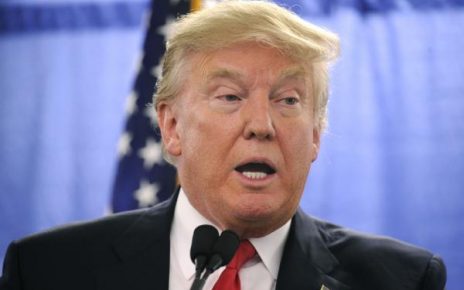The cryptocurrency market in South Korea is currently submitted to strict measures that allow transactions with cryptocurrencies to be conducted only with personal bank accounts. Only the four largest companies that provide cryptocurrency exchange services in the country comply with these measures, which means that almost one hundred cryptocurrency exchanges are operating illegally in South Korea.
According to sources of Business Korea, a local newspaper, the cryptocurrency market has become a chaos due to its pronounced disorder and regulatory disparity. This can be seen if we take a look at the fact that out of all the cryptocurrency exchanges active in the country at the monet, only four platforms (Bithumb, Coinone, Upbit and Koibit) are operating according to the measures imposed by the authorities.
To understand the context of this irregularity, one should know that three months ago the financial authorities of South Korea led by Kim Yon-beom, the Vice President of the Financial Services Commission of South Korea (FSC), applied a group of new regulations for the banks and cryptocurrency exchanges. The new regulations obligate both types of entities to work with personal bank accounts exclusively in order to realizes transactions with digital currencies.
Nevertheless, even though the aforementioned measures have the goal to provide better transparency to the cryptocurrency market, the current situation of the South Korean digital currency market is characterized by the evasion of these measures. It seems the regulatory entities in the country are not pressuring the banks and cryptocurrency exchanges to make their users use their real names.
Specialists for the cryptocurrency market and the regulatory sector of the country point out that the government insists on maintaining the dialogue about cryptocurrencies with the banks and stock exchanges, taking away the legal importance of the cryptocurrencies while the popularity of the digital currencies is on the rise.
The South Korean authorities are also not competent to supervise the cryptocurrency market, which is why they started inspecting the cryptocurrency exchanges through their bank data. This way the national banks have the right to allow or not allow the opening of a bank account in the name of a cryptocurrency exchange and are also threatened to be submitted to intense investigations for administering money coming from cryptocurrency transactions.
This way, in the middle of an ecosystem that is going through its proliferation, where 40 new cryptocurrency exchanges were created in the last 1000 days, the cryptocurrency market is in the neglected regulatory situation which causes more and more problems every day.
In front of this discouraging situation, even the cryptocurrency exchanges and stock exchanges from abroad see an opportunity to establish their operations in South Korea due to the country’s lax application of the regulations. Huobi, a cryptocurrency exchange from China, is one of the cryptocurrency exchange platforms that uses corporate bank accounts to process transfers and not personal bank accounts and all this because of its international status.
An expert who preferred to remain anonymous, gave a statement to Business Korea saying that the constant incorporation of new cryptocurrency exchanges and stock exchanges from abroad would cause large disturbances in the crypto community, which is a situation that could bring more difficulties when it comes to maintaining the transparency of the cryptocurrency market. The expert said: “After Japan and the United States tighten regulations on cryptocurrency, foreign exchanges are seeking to muscle into the South Korean market that have relatively lax regulations. If the trend continues, the government will face more difficulty in making the domestic cryptocurrency market transparent.”
The failure to implement the regulations created a series of controversies in the cryptocurrency community in South Korea. Some members of the community believe that the government’s real plan is to demobilize and control the cryptocurrency market by maintaining only four large cryptocurrency exchanges. This is a tough regulatory stance which was already criticized in the past and that continues to bring damage and grief to the cryptocurrency enthusiasts in the country.
Since here we are talking about a relatively recent technology with less than a decade of evolution, it is interesting to know that China, a country at the forefront when it comes to patent applications related to the blockchain technology is also the country that filed 225 out of 406 patent applications to the United States Patent and Trademark Office (USPTO) last year. This represents 56% of all the patent applications and the patents from the United States of America represent only 22% with 91 patent applications.
Yu Kequn, the director of the National Center for Information Technology Security, while speaking at an event recently, said that the blockchain technology would leader a new wave of technological innovation and new industrial developments, because it combines various functionalities, such as distributed data storage, peer-to-peer communication (P2P), consensus mechanism, etc. Yequn added that the blockchain technology also had decentralized characteristics and was resistant to being altered, while preserving anonymity.
The big banks in China, including China Construction Bank and Bank of China, among others, started working with the blockchain technology in fields such as international trade, fight against poverty, supply chains, etc. Large corporations from China, on the other hand, are impulsing the blockchain technology according to the interest demonstrated by the Chinese government.
On the other hand, we have a discordant situation when it comes to the regulations for the cryptocurrencies, where the Chinese authorities demonstrated a hostile and inflexible stance when they decided to prohibit the cryptocurrency exchanges in February and ban the initial coin offerings (ICOs) back in September, 2016.




